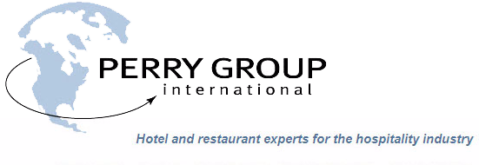When it comes to disputes, most hotels will prefer to use mediation for dispute resolution. This comes from the fact that mediation requires relatively less time, effort, and money than other hotel dispute resolution techniques. It also keeps the case private and protects the reputations of the parties involved, while helping them salvage the business relationship they have built.
However, there are times when mediation is not enough to fix the problem. In these cases, one or both parties might decide to go forward with either arbitration or litigation. The main difference between these two processes is that litigation requires the case to be brought to court. Arbitration typically takes place outside of court. Each of them has pros and cons, which we will get into further. It’s important to note that while Perry Group International isn’t a team of arbitrators or litigators, we have experience in consulting in such cases as hospitality consultants, and as expert witnesses in hospitality dispute resolution.
Pros and Cons of Litigation
Litigation can be advantageous since it allows one party (usually the owner) to put pressure on the other party (usually the operator) through the public interest that the case would stir up as well as the public relations issues that may ensue. It also gives both parties the right to appeal. This way, if the losing party thinks the decision is inconsistent with the law and/or the facts they presented, they can file an appeal through an appeals court. It’s important to note, though, that the appeal process generates an added cost and can have an unpredictable outcome.
A major downside to litigation is that any available judge can take the case. This makes it very difficult for someone without extensive knowledge of the hotel industry to judge your case. Litigation is also time-consuming. Both parties often wait for months before a ruling in the case can be achieved. This can hold them back from moving forward and focusing their time and energies on growing their business. A court appointed receiver may be beneficial to both parties in this instance, to keep the business running smoothly.
Pros and Cons of Arbitration
One of the biggest benefits of arbitration is that the case remains confidential. This is an important factor for hotel operators who don’t want to put their business under the spotlight and destroy its reputation.
Another advantage of arbitration is that the parties can choose the set of arbitration rules used in the case. These rules can come from a reputable arbitration organization, such as JAMS, the American Arbitration Association (AAA), or the International Institution for Conflict Prevention and Resolution (CPR).
The parties can also customize the rules to ensure they fit their specific requirements, which promotes predictable outcomes while removing the need for additional costly processes. Having the option to tailor the process means that both parties can choose who is on the arbitration panel. For example, hospitality experts who have years of experience in the hotel business and/or attorneys who are highly knowledgeable about the hospitality industry. As a result, both parties have the assurance that the case is spearheaded by people that understand the hotel sector and the procedures involved in it.
Unfortunately, arbitration also has its downsides. Unlike litigation, both parties usually do not have the option to file an appeal in case. The final ruling can be disheartening for the losing party.
Getting Assistance for Dispute Resolution
Hotel owner in the middle of a dispute? Your first step will likely be contacting an attorney to review the best recourse. We at Perry Group International can also refer legal counsel who specialize in the hotel industry. Your attorney may engage a team of hospitality experts who specialize in hotel dispute resolution. We also provide consulting assistance and expert witness services during the arbitration or litigation process. Give us a call to know more about these solutions!
Contact us Today at: (800) 580-3950; Continue Viewing Our Website






